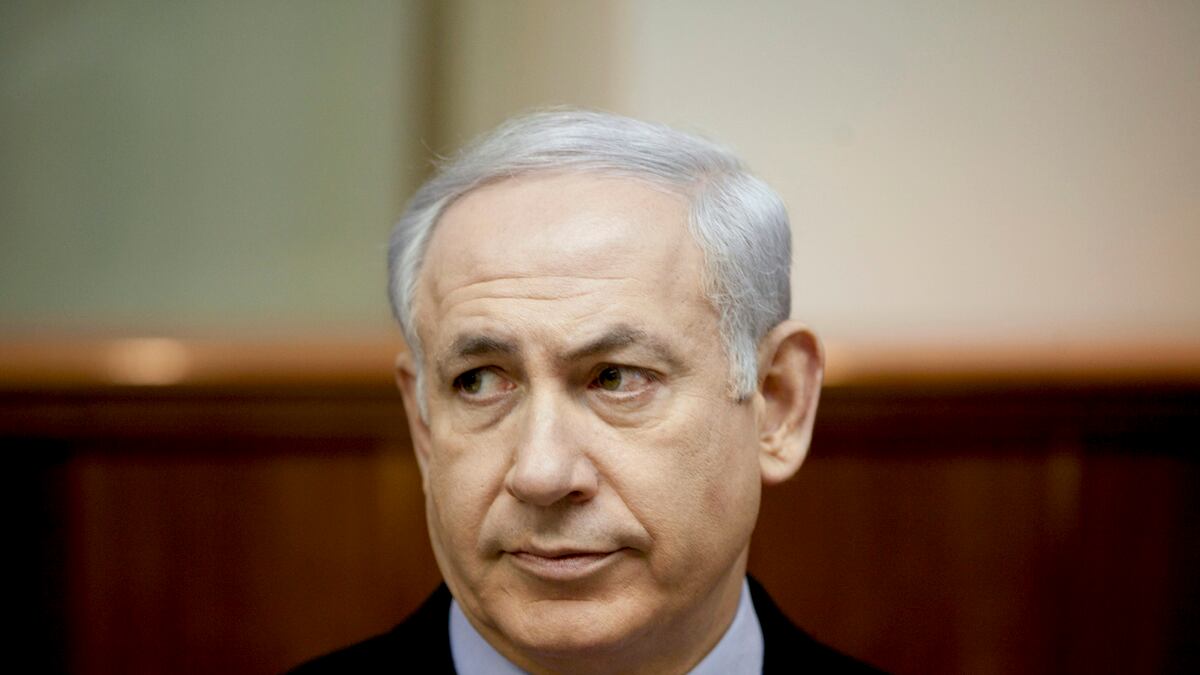Netanyahu has another 21 months until his time in office runs out, an eternity in Israeli politics. With a stable coalition for now and no real pressure from rivals within his party, he could easily become the first prime minister in two decades to serve out his term.
But a rise in his public standing and a feeling among some of his advisers that Netanyahu needs to get reelected before Barack Obama does—or face withering pressure from a second-term U.S. president that could erode his support at home—might dictate a different timetable.
Some analysts believe Israelis will be going to the polls as soon as this summer.
“How do we know that we are in an election year?” wrote Ben Caspit, a columnist for the daily newspaper Maariv this week. “Just like in intelligence work, one has to collect warning signs.”
The first sign was Netanyahu’s decision last month to move up the date of the primaries in his Likud Party by more than a year. Now slated for Jan. 29, the race pits the incumbent against far-right political activist Moshe Feiglin. Netanyahu is expected to win easily.
That move triggered other political developments, the kind generally associated with election years. A popular television news anchor, Yair Lapid, announced he’s entering politics. So did Noam Shalit, the father of longtime Hamas captive Gilad Shalit, who was freed in a prisoner exchange three months ago. He joined the opposition Labor Party.

Though Shalit had become widely admired for a persistent campaign to win his son’s release, his decision is not expected to alter the political landscape. But Lapid, who is also a newspaper columnist and whose views appear to place him left of Netanyahu on the political spectrum, could potentially draw support away from Likud and its satellite parties. Polls published this week showed a party headed by Lapid garnering up to 15 seats in the 120-member Knesset (Netanyahu’s Likud Party controls 27 seats).
The numbers mean little when elections are nearly two years off. But under Israel’s electoral system, a prime minister can trigger an early election—in as little as 100 days—by resigning or dissolving Parliament.
Ironically, it was Netanyahu’s decision to trade more than 1,000 Palestinian prisoners for Shalit last October that boosted the Israeli leader’s popularity. His approval rating hovers at around 50 percent.
But analysts believe that figure could drop sharply if President Obama were to raise the volume on his disagreements with Netanyahu—for instance, over settlement construction in the West Bank—leading to a confrontation between Israel and the U.S. The two men have had a tense relationship since their first official meetings in 2009.
“Israelis are very sensitive about their leader’s relations with the United States,” said Itzhak Galnoor, a political scientist at Hebrew University and a fellow at Jerusalem’s Van Leer Institute. He said Israeli voters could possibly punish Netanyahu for allowing the relationship to deteriorate.
Obama would be unlikely to escalate matters with Israel while fighting for his own reelection. Backing for Israel is a key issue in the American presidential campaign, with Republican candidates voicing uncritical support for settlement expansion and other Israeli policies. But Obama would feel less obligated as a second-term president to keep the tensions with Netanyahu hidden from the media, a development that would cause deep discomfort in Jerusalem.
Reuven Hazan, another Hebrew University political scientist, said the last time an American president really pressed an Israeli prime minister publicly over settlements, Israeli voters responded by electing his opponent. He was referring to a decision President George H.W. Bush in 1991 to withhold loan guarantees over continued settlement expansion.
“Bush’s influence swung the election,” Hazan said. “A second-term president in the U.S. can be powerful enough to influence voters here, and Netanyahu knows it. That’s why the likelihood that the government will survive until next year is not high,” he said.





